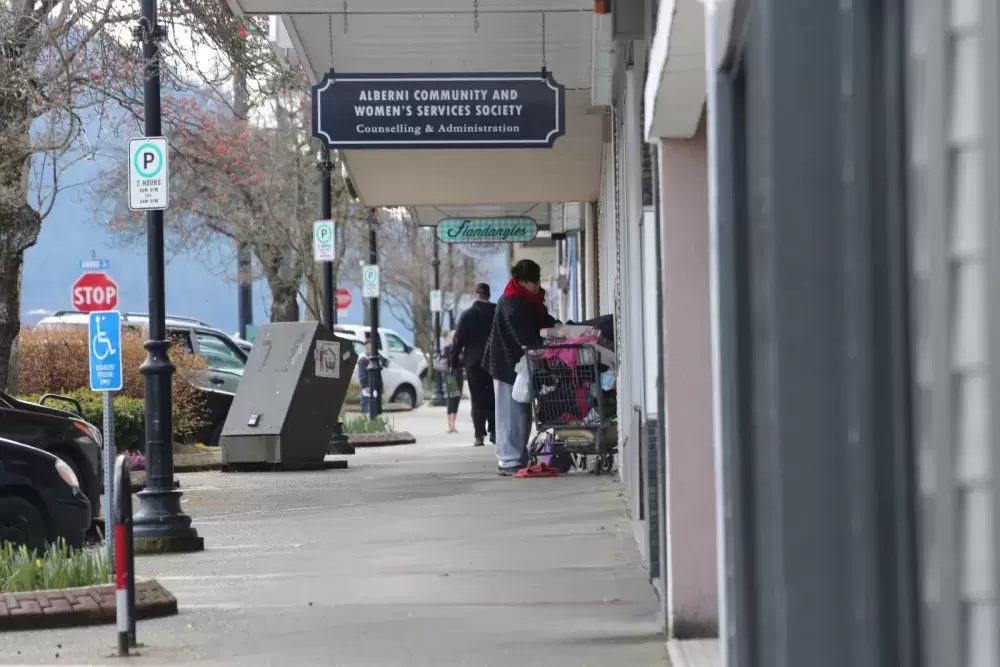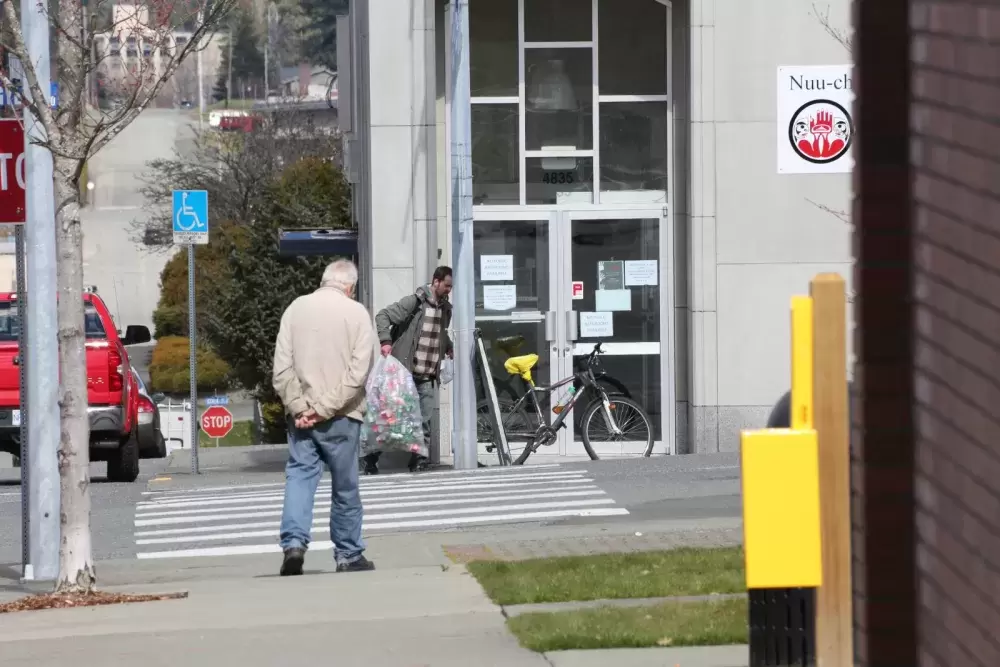A new health clinic is coming to Port Alberni’s inner-city area, presenting a collaborative approach to primary care that aims to improve upon a traditional system that, for many patients, has proved to be ineffective.
The B.C. Ministry of Health has approved funding for the Indigenous Urban Community Health Centre. Launched by the Port Alberni Primary Care Network, the new clinic is planned to open in 2024 in the small city’s South Port area, between 3rd and 10th Avenue where needs were identified to be most urgent.
Like the Friendship Centre, the clinic would be open to all in need, and is intended to “address health issues and the prevention of acute illness among low-income, street-entrenched, Indigenous and non-Indigenous priority populations in the downtown core,” according to the primary care network.
Rather than a traditional doctor’s office, the clinic is designed to offer a team of collaborating professionals, working together to increase a patient’s attachment to primary care. Positions for the facility include three physicians or nurse practitioners, two registered nurses, one licenced practical nurse, two social workers, a First Nations navigator, an Indigenous knowledge keeper, a midwife, occupational therapist, physical therapist and clinical lead.
A mental health and substance use clinic will be available at the new space as well.
“It’s well past time for this community to get some serious resources in place,” said Tina Biello, project manager of the Central Island Division of Family Practice, a non-profit society of family doctors and nurse practitioners in the region that is developing the clinic and the primary care network behind it. “There will be a clinical lead who will be running this whole show. That will be their job, is to make sure that there’s coordinated care, comprehensive communication and getting all of that organized so that there isn’t two-hour wait for patients.”
Across British Columbia the number of residents without attachment to a primary care provider has increased in recent years to 20 per cent, and those with a family doctor are often not able to get an appointment in a timely manner. Last year a poll from the Angus Reid Institute found that 59 per cent of patients find it difficult to access their family doctor – or don’t have one at all.
In Port Alberni the situation has resulted in long lineups at the walk-in clinic and a constant flow of patients seeking treatment in the emergency room that could otherwise be dealt with in the doctor’s office.
“Many people in B.C. can’t get a family doctor or timely access to the full range of care they need,” stated the Central Island Division of Family Practice. “GPs are under stress and the threat of burnout is real. Meanwhile, hospitals are facing unsustainable pressures.”
In February the province worked to improve the lot of family physicians with a new payment model based on the number of patients a doctor sees and the complexity of their needs, but the primary care network’s clinic intends to present an altogether different approach. Doctors at the new facility will be paid according to a set service contract from the Ministry of Health regardless of how many patients they see, an alternative to the revolving door of patients that family doctors face in the current fee-for-service model.
“That’s why they’re usually late and you only have 10 minutes, is because in order to get paid they have to see a lot of patients,” said Biello of the traditional system of family practice. “These come with contracts, so there’s going to be no pressure on the physician because they’re being paid by a contract.”
The Central Island Division of Family Practice held consultations in the summer and fall of 2021 to help identify the region’s main issues in access to primary care. Common concerns were a lack of treatment that felt culturally safe for First Nations, wound care for the homeless, a shortage of maternity services, the need for advocacy to help people get the health care they need and a demand for a mobile unit to serve remote communities.
To meet this need, the primary care network is also announcing a clinic on wheels that would be available for the Ditidaht, Uchucklesaht and Huu-ay-aht First Nations.
Those behind the new clinic hope that the alternative approach to primary care will attract health professionals seeking a more manageable career than the family doctors who run a practice of over 1,200 patients.
“Especially for the physicians coming out of training, they don’t want the things their predecessors have done. They don’t want to work to the bone and be exhausted. They want that balance,” said Biello. “If they have a nurse who can do a whole bunch of things for them, they have time to pick up another patient. Theoretically you should be able to get in quicker if they have a nurse, because the nurse is picking up so many of the duties so the doctor can see other patients.”
On Tuesday, May 16 an event is planned to announce information about the Indigenous Urban Community Health Centre. It will be held at the Port Alberni Friendship Center, 3555 4th Ave., 5:30-7:30 p.m.



